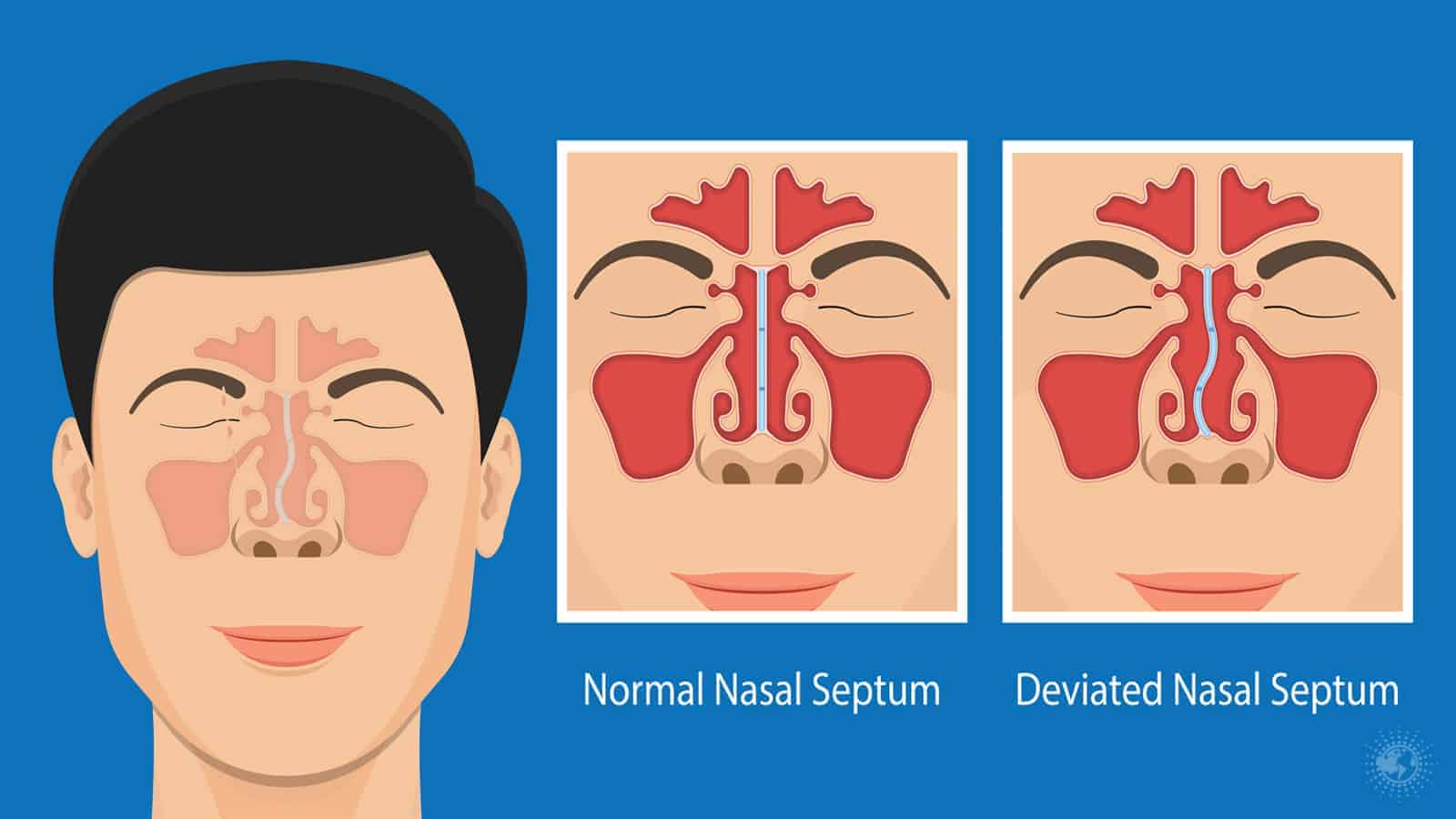Nosebleeds can and will happen. However, the sight of any blood can be alarming, primarily if they occur frequently. When you experience a nosebleed, it’s probably nothing concerning to worry about, but there is always a chance it stems from a more serious matter.
Consequently, having frequent nosebleeds can indicate that there’s a bigger issue under the surface. According to the National Institute of Health, roughly 60 million people in this country have at least one nosebleed each year.
Don’t be alarmed at the amount of fluid you see, as this area is known for having a significant blood supply, so it tends to produce more blood than other regions. If you turn to home-based treatments, you may find some relief, but if there is something such as a sinus tumor, it needs to be addressed. You may stop the blood quickly, but there will be more bleeds as the tumor grows and presses on blood vessels.
What Causes Your Nose to Bleed?
Any bleeding in your body comes from trauma or damage, and the nose is no exception. When your interior nasal passageways have an issue, then it’s natural for them to bleed. The septum is the center of your nose where the cartilage is divided into two sections. According to the National Institute of Health, a deviated septum occurs when one nostril is larger than the other.Most nosebleeds will occur in the septum area as there are many blood vessels in this location that can quickly become damaged. After one of these vessels is injured, it’s going to be commonplace for you to experience more bleeding than usual. You will mainly see this when blowing your nose, though a bloody nose can happen without force.
While these blood vessels are in the healing process, you can disrupt the scab by the force of your blow. Anytime that scab is removed, it’s going to cause a nosebleed. Besides damage, do you know the other reasons why your nose would bleed?
1. The Weather
If you suffer from sinus issues, you may find that you’re blowing your nose more during certain seasons. The winter seems to be the harshest on your sinuses, and you might have more nosebleeds during this time. This area becomes dry and irritated, which makes it more susceptible to bleeding.
2. Picking Your Nose
Almost everybody does it, but very few people talk about picking their nose. There are just some occasions when a tissue doesn’t do the job you need it to do. If you need to handle things manually during specific times, your finger can cause damage inside your nasal cavities.
While it may be the best way to get rid of a suborn clog, it’s always best to keep your finger out of these passageways.
3. Foreign Objects
It’s not uncommon for a child to stick something inside their nose. Even adults can have things like a tip of a nasal spray get stuck in there. Anytime something that isn’t supposed to be inside the nose is lodged in there, it can cause excessive bleeding from trauma.
4. Congestion and Infections
When you are congested or have an upper respiratory infection, you will be blowing your nose a lot more than usual due to excessive mucus and drainage. The constant pressure you put on this region when you blow can burst blood vessels resulting in a nosebleed.
It’s annoying to have one side clogged and reduce your breathing capabilities but resist the urge to blow too frequently, as it does more harm than good.
5. Structural Abnormalities
A deviated septum is one cause of abnormal bleeding, but you can also have things like holes in the sinuses and bone spurs. Anything abnormal in this area can cause you to have a bloody nose, but you should always pay special attention to any pain you may feel. Pain is almost always a sign that something else is going on besides a random bleed.
When Nose Bleeds Are Concerning?
You understand the common issues that cause your nose to bleed, but what about the more severe conditions you need to have treated? Sadly, your nose bleed might not be a benign condition as it might be signaling you to get help for a more severe issue. Here are the most serious reasons for a bloody nose.
1. High Blood Pressure
It’s easy to see that your nose is remarkably close to your brain, which can be concerning. A normal blood pressure reading is 120/80 mm, according to the National Institute of Health. When your BP rises to levels above that, then your body will react.
Your heart begins to pump harder, and the force is often too much for the body. It’s easy to have a heart attack or stroke when the BP is above 150/90 mm. Additionally, the tremendous force can cause a nosebleed.
If you have a headache in the back of your head and a bloody nose, then you need to check your blood pressure. You can easily check your BP at home with a machine you can pick up at a local pharmacy.
2. Paranasal Sinus Cancer
Some folks seem to be plagued with sinus issues, more so than others. If you have chronic sinus problems, it’s something that should be evaluated. Small tumors can form anywhere within the sinus cavities, and these tumors can cause bleeding.
Since you’re dealing with an area so close to the brain, it’s always a serious matter that needs to be evaluated. Paranasal sinus cancers are not as common as other forms of malignancy, but they do happen.
3. Nasal Cavity Cancer
A tumor inside the nasal cavities occurs infrequently. However, if you have a blockage, like a cold, that you can’t clear, it’s a sign of trouble. You may also notice increased bleeding and an abundance of mucus, and a decreased sense of smell.
According to the American Cancer Society, only about 2,000 people are diagnosed with this cancer each year. Thankfully, the five-year survival rate is around 89 percent, but the survival rate is based on how quickly someone gets help.
4. Blood Disorders
Some folks have problems with their blood clotting. Clotting disorders are relatively common, and one way you might identify this issue is by frequent nose bleeds. A bloody nose can be a side effect of some treatment methods, or it can happen due to some defect within your system.
5. Broken Nose
A bloody nose could be a sign of a break. Inside your nasal passages is your septum, which is made of cartilage and bone. The bone or the cartilage can break, causing swelling, pain, and blood. You must be hit hard in the nose to have a break, but it’s a common occurrence.
What to Do When You Have A Bloody Nose?
Treating a bloody nose can be done at home if the bleed isn’t too severe. The first thing you must do is to remain calm and try not to panic. Then, take a seat and tilt your head backward or frontwards slightly.
Pinch your nose closed as it helps to get the bleeding under control, and you will need to breathe through your mouth. Once the bleeding has subsided, it’s beneficial to use a nasal spray to hydrate the area, especially if you live in a dryer climate.
It may be challenging to keep from picking at it or moving the passages around to look inside, but try to refrain from moving or evaluating your nose after a bleed. If you’re in a dryer climate or this occurs during the winter season, you can apply a thin layer of petroleum jelly to the inside of your nose to keep the area moist.
The medical community considers a bleeding nose serious if you cannot get it under control within 15-20 minutes. If you’ve tried everything and nothing seems to be working, then head to the emergency room to evaluate the situation. Keep your nose pinched closed and your head tilted on the ride there.
Final Thoughts on Knowing if a Bloody Nose is a Severe Condition
Every year millions of Americans experience problems with nose bleeds, and it’s reasonable to expect to have a few in your lifetime. One nosebleed by itself is not a significant concern as it can happen to anyone. However, it’s the frequency and duration that are the most concerning.
Most folks can treat their nosebleed without the help of medical intervention. It’s easy to uncover the reason for the bleed, especially if there was a recent trauma or illness. However, when these bleeds occur for no reason, and they’re frequent and severe, it warrants an evaluation.
Finally, keep a log of your nosebleeds, how long they last, and the circumstances surrounding them. This information will prove vital to a treating physician who needs to solve the medical mystery. Tumors in the sinus or nasal passageways are easy to identify with imaging tests, but other issues may take some detective work to resolve.

















 Community
Community

